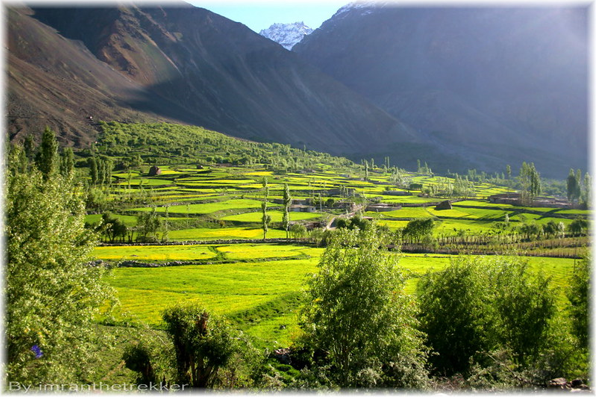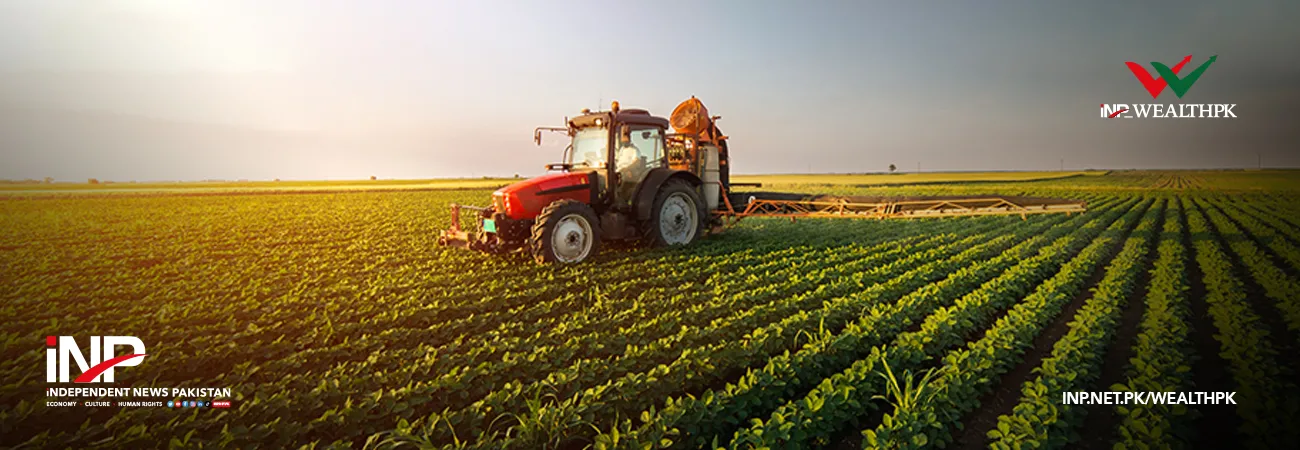آئی این پی ویلتھ پی کے
Arooj Zulfiqar
Effective resource allocation holds the key to unlocking Gilgit-Baltistan's agricultural potential and transforming challenges into opportunities for sustainable economic prosperity of the region, reports WealthPK.

“Gilgit-Baltistan, renowned for its natural beauty and distinctive climate, possesses untapped potential to develop a robust agricultural economy. However, the region faces persistent challenges due to a lack of strategic planning and effective resource allocation,” said Ghulamullah Saqib, a deputy director at the GB agriculture department. Speaking to WealthPK, he said, “The region’s fertile valleys are capable of producing high-quality fruits, vegetables, and other crops. Yet, inadequate infrastructure, outdated farming practices, and limited access to markets continue to hamper productivity.” “Poor road networks and the absence of cold storage facilities result in substantial post-harvest losses, especially for perishable goods.
Farmers often find themselves unable to transport their produce to markets efficiently, leading to financial setbacks,” he said. Saqib added, “Climate variability adds another layer of complexity, with unpredictable weather patterns impacting planting and harvesting cycles. This vulnerability underscores the urgent need for sustainable farming practices and the adoption of climate-resilient crop varieties. At the same time, the region’s farmers face difficulties accessing modern farming tools and techniques, so they rely instead on traditional practices that limit yields and profitability.” He said, “Despite the region's potential, market access remains a significant challenge.
Farmers have limited avenues to sell their produce at competitive prices due to the absence of dedicated marketplaces and robust distribution networks.” The GB agriculture department official said, “To overcome these challenges, there is a need to address systemic issues such as supply chain inefficiencies and market integration.” “The path forward requires a fundamental shift in how resources are allocated. To bring about meaningful change, resources need to be redirected toward long-term, impact-driven solutions,” he said. “Investments in infrastructure, including improved roads and storage facilities, would significantly reduce wastage and enhance market connectivity.
Training programmes aimed at equipping farmers with knowledge of modern agricultural practices, pest management, and value-added processing could further boost productivity,” he added. Saqib also emphasised that technological integration holds promise for the region. “The adoption of precision agriculture techniques and digital tools could help optimise resource use, improve crop yields, and reduce costs. Furthermore, public-private partnerships could play a pivotal role in providing access to advanced farming equipment, affordable financing, and new market opportunities.”
Credit: INP-WealthPk












